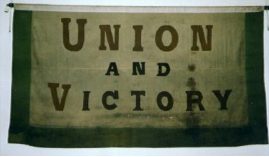Please see above and below Circular No: NCP/056/18
Our Ref: LA/15/03/2018
15th March 2018
To: Branches, Regional Councils & Regional Offices
Dear colleague,
Spring 2018 Update:
1.Compensatory Rest Breaks (Crawford v Network Rail Infrastructure)
This was one of our cases where the EAT found in our favour.
The Working Time Regulations 1998 introduced a right to rest breaks for all workers if their daily working time is more than six hours. A rest break should be an uninterrupted period of at least 20 minutes, and a worker is entitled to spend it away from the workstation if he or she has one. A worker may be required by the employer to work during a period which would otherwise be a rest break. In such a case, the employer must allow the worker, wherever possible, to take an equivalent period of “compensatory rest”.
Mr Crawford is a railway signalman working on a single manned boxes on 8-hour shifts. He had no rostered breaks but was expected to take breaks when there were “naturally occurring breaks” in work whilst remaining “on-call”. Although none of the individual breaks lasted 20 minutes, in aggregate, they lasted substantially more than 20 minutes.
Mr Crawford claimed that he was entitled to a 20 minute rest break under the working Time Regulations or “compensatory rest”. The Employment Tribunal found that the regulation did not apply and that the arrangements were compliant with the regulations.
Mr Crawford appealed to the Employment Appeal Tribunal on the basis that “an equivalent period of compensatory rest” must comprise one period lasting at least 20 minutes. His appeal succeeded in the light of a case called Hughes v Corps of Commissioners and in particular to the judgement of the Lord Justice Elias which appeared to lay down such a requirement and to be part of the reasoning and binding on the Employment Appeal Tribunal. The EAT held that where the normal entitlement to rest breaks under Reg 12(1) of the WTR 1998 is excluded by a “special case” exemption, the equivalent period of compensatory rest given under Reg 24(a) must, as far as possible , amount to a break from work that lasts for at least 20 minutes. Allowing our member to take a number of shorter breaks throughout his eight hour shift, which in aggregate, amounted to substantially more than 20 minutes, did not amount to the provision of equivalent compensatory rest.
The case highlights that there are differences between a rest break under Reg 12(1) and compensatory rest under Reg 24(a) in that a person can be on call during compensatory rest but not during a Reg 12 rest break. The essential element to both is that the worker must have an uninterrupted single period of at least 20minutes rest. Where a special case exemption applies and there are objective reasons why such a period of compensatory rest is not possible then the employer must afford the worker appropriate health and safety protection under Reg 24(b). It isn’t clear from the case what this protection might be could include additional supervision; health assessment checks to consider the employees fitness to work; reducing the workload or perhaps transferring the employee to a temporary position on less onerous duties.
Network Rail has appealed this decision to the Court of Appeal. We will advise you of the outcome in due course.
- Data Protection: Employer vicariously liable for employees data breach ( Various Claimants v Morrison Supermarkets plc ; High Court)
This is the first group litigation data breach case to come before the courts. The High Court held that the employers were vicariously liable for the actions of a rogue employee who disclosed the personal information of around 100,000 colleagues on the internet. The disclosure took place outside working hours and from the employee’s personal computer, but the court found that there was a sufficient connection between the employee’s employment and the wrongful conduct for it to hold the employer liable. The Court rejected the employer’s argument that the DPA 1998 did not recognise any form of vicarious liability fir unauthorised acts of employees and that only the primary data controller is subject to civil actions.
- Trade Union Activity (Jet2.com Ltd v Denby EAT)
The Employment Appeals Tribunal (“EAT”) upheld the decision of an employment tribunal that a pilot, who was turned down for employment with an airline he had previously worked for because of his earlier campaigning on behalf of the trade union BALPA, had been refused employment due to his trade union membership.
The EAT considered that since the legislation was concerned with protecting job applicants from being denied employment because of their status as trade union members, it would leave a gap in the statutory protection, contrary to the legislative intent, if an objection to trade union activities that were incidental to membership could not be construed as an objection to membership itself. Furthermore, a broad construction of the term ‘membership’ was necessary to give effect to the right to freedom of association under Article 11 of the European Convention on Human Rights.
- Working Time and Stand by (Ville de Nivelles v Matzak European Court of Justice)
Confirmed that stand-by time spent at home may constitute ‘working time’ where the geographical and temporal constraints imposed by the employer objectively limit the worker’s opportunities to pursue personal and social interests. This was so in the instant case, where M, a firefighter, was obliged to respond to calls and be at his place of work within eight minutes. He was thus obliged to be physically present at a place determined by VN (albeit that place was M’s home, rather than his workplace).
Could you please draw this to the attention of our activists and members.
Yours sincerely
Mick Cash
General Secretary



